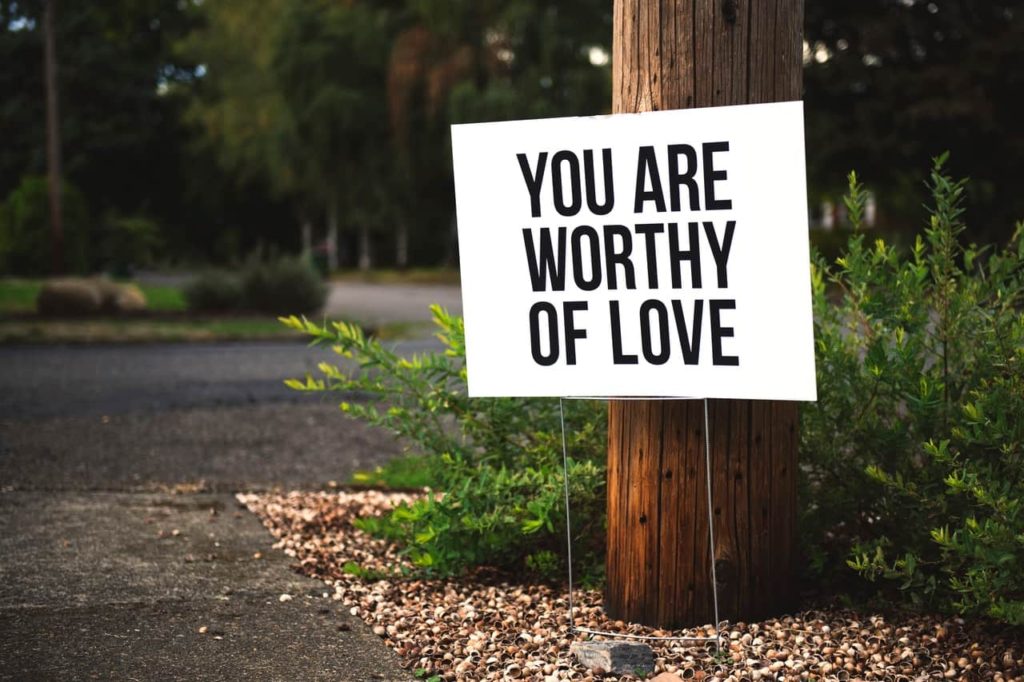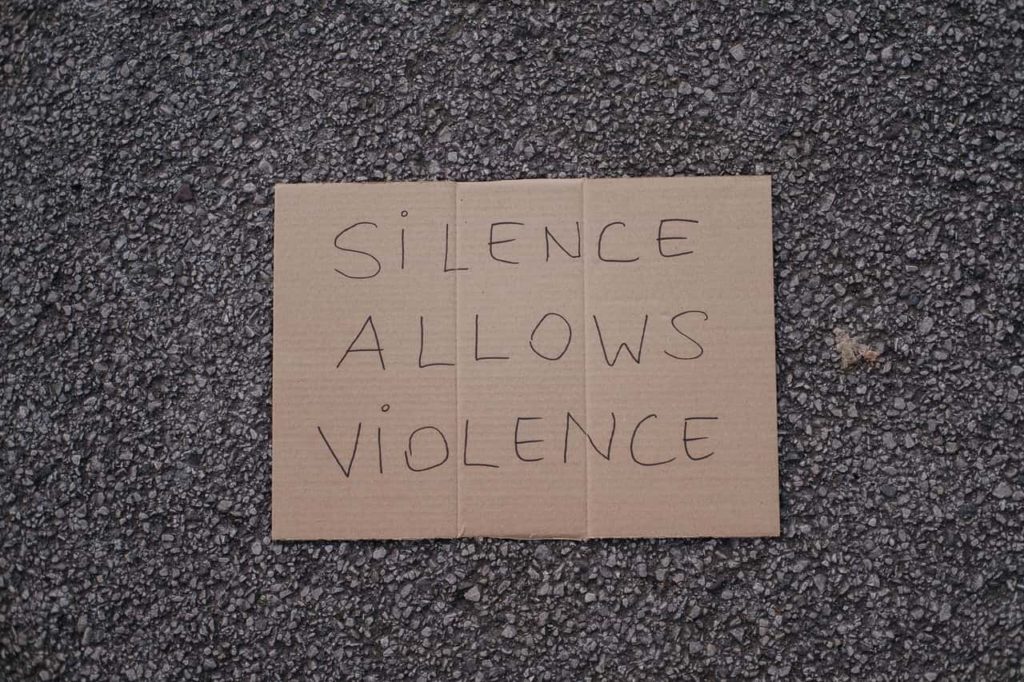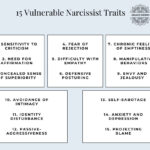How to Heal from a Narcissistic Relationship
Are you struggling to heal from a narcissistic relationship? Knowledge is power so continue reading to help yourself understand how you can heal and move forward in your life.
We all know that breaking up with someone is painful. Even if you feel that it was the best choice, and you were feeling that the person was inhibiting you from reaching your potential, it still requires some sort of grieving.
Ending a relationship with someone also requires some sort of adjustment to your new life and routine, which might feel uncomfortable and a bit scary until you re-adjust yourself. However, when you end a relationship with a narcissistic partner, it’s a totally different ball game.
It’s important to understand that they want you to stay in their life not because they really love you, but because they want to keep taking advantage of you and ensure that you are there to attend to their needs.
If you’re ready to embark on your healing journey through personalized guidance and support, I’m here to offer valuable insights and practical tips through my supportive online community and the Group Narcissistic Abuse Recovery Program. (If you prefer one-to-one sessions, I offer Narcissistic Abuse Counseling personalized sessions according to your needs and specific situation).
How narcissists make it hard to heal from a narcissistic relationship
Narcissists are good at playing this game, and they shift back and forth from making you feel good and love bombing you, to breaking you down to a level you that thought you would never reach by gaslighting you. When you are emotionally involved and attached to someone who abuses you, the moment they show some level of improvement, you fall for their games and believe that they could actually change and love you authentically.
Unfortunately, this phase of improved behavior is only temporary, and it’s only a matter of time until the narcissist takes it to another level. They know that they can get away with anything with you, and they continue to step over your boundaries, which gives them an ego boost and makes them feel more powerful over you.
The longer the relationship is, the more damage you will endure and you end up feeling confused, not knowing what is real or not anymore. You end up questioning your own judgement and you feel that you cannot trust yourself, it’s like you lost touch with reality. This is a result of gaslighting which is a form of manipulation and psychological abuse that leaves you questioning your own sanity.
People who experience this kind of abuse struggle with finding strength to make the decision and leave their abuser. They have been subjected to emotional abuse by a person who they thought was their perfect match, as narcissists are very good at presenting themselves in this way. They can read people very well, so they know exactly what they need to do to get you hooked on them before they show you their true colours.
Healing from narcissistic abuse won’t happen overnight. It is a journey that will take time, but with support and learning how to take care and love yourself, you will find yourself again, and become more resilient than ever before. It’s important to be compassionate and patient with yourself. When you have been in a relationship with a narcissist, you get used to getting the blame for everything that happens, so you will need some time to reclaim yourself and detach from the wrong ideas you have about yourself due to the abuse.
What steps can you take to heal?
1. Recognizing What Happened
The first step towards healing is recognizing and acknowledging what has been happening to you. Some people end up normalizing the abuse as it becomes their every day reality. If you don’t become aware of the issue that has been sucking the life out of you, you wouldn’t be able to understand what you have been going through.
Recognizing and acknowledging the fact that you have been a victim of narcissistic abuse, will help you make sense out of things and realize that you are not crazy. There’s nothing to be ashamed of or feel guilty about, what happened to you is not your fault.
Everyone can fall for their games no matter how smart you are or what you do for a living. People with a narcissistic personality disorder play an emotional mind game with a variety of manipulation tactics, and people who are codependents are very likely to fall prey to them.

2. Grieving
Every kind of break-up requires some sort of grieving, but when it comes to narcissistic partners, this goes to another level. When you meet a person with these traits, they present themselves as your ideal partner, making you believe that they have everything you have ever dreamed of.
They start love bombing you and lavishing you with attention and affection, making you feel like the luckiest person on the planet for being with them. It’s almost like casting a spell on you, making you feel high on love. This love bombing is only a temporary phase, and it’s only a matter of time until something triggers them, and they start showing how controlling and obnoxious they can be.
Sadly, many people mistaken this behaviour for being protective or end up blaming themselves for not being good enough as they cannot understand how such a lovely, considerate and thoughtful person could switch into such a nasty being! It’s extremely painful to realize and come to terms with the fact that the loving and attentive person whom you thought was your soul mate is actually an illusion.
It takes a lot of time to process this, and letting go of that person is not easy as for you it all seemed very real. Learning how to recognize red flags like being possessive, controlling, and belittling you, will help you realize that a person who truly loves you would not behave in such a disrespectful manner.
3. Understanding the Psychology Behind It
Trying to make sense out of things is not easy as nothing seems to make sense, no matter how much you think about it. You’ve tried everything you could think of to make it work with the narcissist, like changing your behaviour, analysing what you say before you say it, buying them gifts and neglecting your own needs to attend to theirs. Nothing seems to make them happy and no matter how much you show them that you love them, it’s never enough.
Unfortunately, most people make the mistake of interpreting this as not being good enough themselves. This is not the case, as narcissistic people have an issue with self-love and validation no matter how full of themselves they seem. So it’s important to understand that you cannot fix this for them. Educating yourself about this issue will also help you understand why they were treating you with such disrespect and why they kept withdrawing their love from you.

4. Self-Love and Self-Care
Learning how to truly love yourself is essential if you want to heal from trauma. It’s important to realize that people who love themselves completely would not end up in a relationship with a narcissist in the first place. When you truly love yourself, you are able to assert your needs and boundaries, and when someone disrespects you, you would have the courage to end the relationship before it gets worse.
For some reason, you decided to stick up with the narcissist and the abuse, and even though you might love yourself to a certain extent, you still ended up neglecting your needs to attend to theirs. Learning how to communicate your needs and taking care of yourself will help you establish a healthier relationship with yourself and with others. Taking care of yourself is not selfish, it’s an act of self-love. People who tend to fall for these kinds of toxic relationships usually have such a big heart, ready to help anyone but themselves.
A relationship with someone who has narcissistic traits feels like a roller-coaster of emotions, and can leave you mentally exhausted. It’s important that you engage in activities which nourish you and make you feel good. Healing is a journey of self-discovery, you have spent so much time focusing on how to please others, you forgot who you truly are and what you really enjoy doing.
Practicing mindfulness techniques like breathing exercises, yoga and meditation will help you feel grounded and help you rebuild self-trust. You will become more aware of whom you truly are and where you want to go with your life. Practicing self-love will also help you protect yourself from entering into another toxic relationship and repeating the cycle all over again. If you want to learn more about how you can practice self-love, have a look at my article below:
5. Forgiveness
If you want to experience inner peace and feel completely free from the emotional pain you have endured, it is important to practice forgiveness. This process takes time and will come at a later stage after you have healed deeper wounds and reclaimed yourself. As you start detaching from the narcissist and start re-building yourself, you will become more resilient which gives you a sense of empowerment and personal control over your life.
However, you might notice that you still carry a sense of anger or resentment towards what happened. Forgiving the abuse does not mean that you justify what happened or that you will allow it to happen again, but it will help you to let go of unpleasant emotions which are still stored in your being. These unpleasant emotions can have a negative effect on your body and mental well-being, and can inhibit you from reaching your potential.
To forgive what happened to you requires a sense of compassion and realizing that abusers have a problem with themselves. Embrace the fact that once you let go of the person, you are completely free of their mental torment, while they have to live with themselves for the rest of their lives. This will give you a sense of relief and also helps you to move forward.
Being able to forgive reflects a sense of confidence and strength within you, as you know that this does not mean that you will go back to your abuser or allow anyone else to mistreat you like that every again. When you are able to forgive, it means that you are able to let go of all the bad emotions resulting from the abuse, leaving you completely free and finding inner peace.

6. Seeking support
Dealing with trauma can be quite complicated and overwhelming. Unfortunately, people who have been experiencing domestic abuse, end up feeling isolated and living in constant fear. It’s important to seek support during such a turbulent time.
Whether you seek comfort in a family member, a dear friend, or seek professional help, you will surely feel a sense of relief sharing your experience with someone you feel comfortable with and trust. It’s expected that your abuser would threaten you and tell you not to tell anyone about what’s happening, but you should not feel guilty about seeking support. Narcissists care a lot about their reputation, which is why they wouldn’t want anyone speaking about their dark side.
There are also numerous support groups that you could join which could really help you as you would connect with people who had similar experiences. Connecting with others who can empathize with you and understand what you’ve been through will help you release bad emotions and bad energy accumulated from the toxic relationship you have dealing with.
It’s quite a common trait that people who end their relationship with narcissistic people end up contacting them, which could be very dangerous as it might result in falling for them again. Surrounding yourself with a support system of family and friends will help you refrain from going back to your abuser and will help you embrace the beautiful qualities you have within you.
Healing and Breaking Free

Healing from a narcissistic relationship is not easy, but it is possible. Be patient with yourself and DO NOT CONTACT your abuser. If you have kids, keep the communication strictly about them and do not answer any other questions or fall for any of their tactics. Once you give up any hope that you can make this relationship work, you can start working on the relationship you have with yourself.
When you reclaim yourself and see them for who they really are, you realize that there’s nothing attractive about someone who doesn’t have any sense of empathy with a great sense of selfishness and a vindictive behaviour.
The dynamics in a relationship with a narcissistic person are the complete opposite of what a healthy relationship represents. Relationships should enhance your life and motivate you to be a better version of yourself as you help each other grow.
By seeking support and learning new life skills of how to establish boundaries and have better communication and understanding, you will be able to break the cycle of unhealthy patterns. As a result, you will learn how to make better decisions and choose people who compliment you so you can live a healthier and happier life where you can be loved and appreciated for whom you truly are.
How helpful was this page?
Click on a star to rate it!
Average rating 4.5 / 5. Vote count: 55
No votes so far! Be the first to rate this post.
We are sorry that this post was not useful for you!
Let us improve this post!
Tell us how we can improve this post?
Grace Being
Search
Recent Posts
Categories






